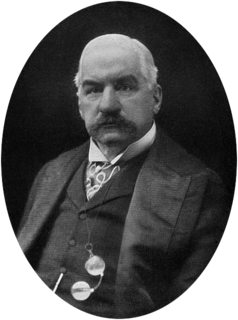A Quote by J. P. Morgan
A man always has two reasons for doing anything: a good reason and the real reason.
Quote Topics
Related Quotes
Good poems do a lot of things at once. Often, by doing so, they encourage us to acknowledge mixed and incompatible feelings. Good poems, like good works of history, resist monocausal explanations for anything. There's not one reason why I am angry or excited or hopeful, when I feel those things. And there's not one reason why President Obama won two elections. And there's not one reason why Donald Trump won the most recent presidential election.
Courtesy is doing that which nothing under the sun makes you do but human kindness. Courtesy springs from the heart; if the mind prompts the action, there is a reason; if there be a reason, it is not courtesy, for courtesy has no reason. Courtesy is good will, and good will is prompted by the heart full of love to be kind. Only the generous man is truly courteous. He gives freely without a thought of receiving anything in return.
There are two excesses: to exclude reason, to admit nothing but reason. The supreme achievement of reason is to realise that there is a limit to reason. Reason's last step is the recognition that there are an infinite number of things which are beyond it. It is merely feeble if it does not go as far as to realise that.































